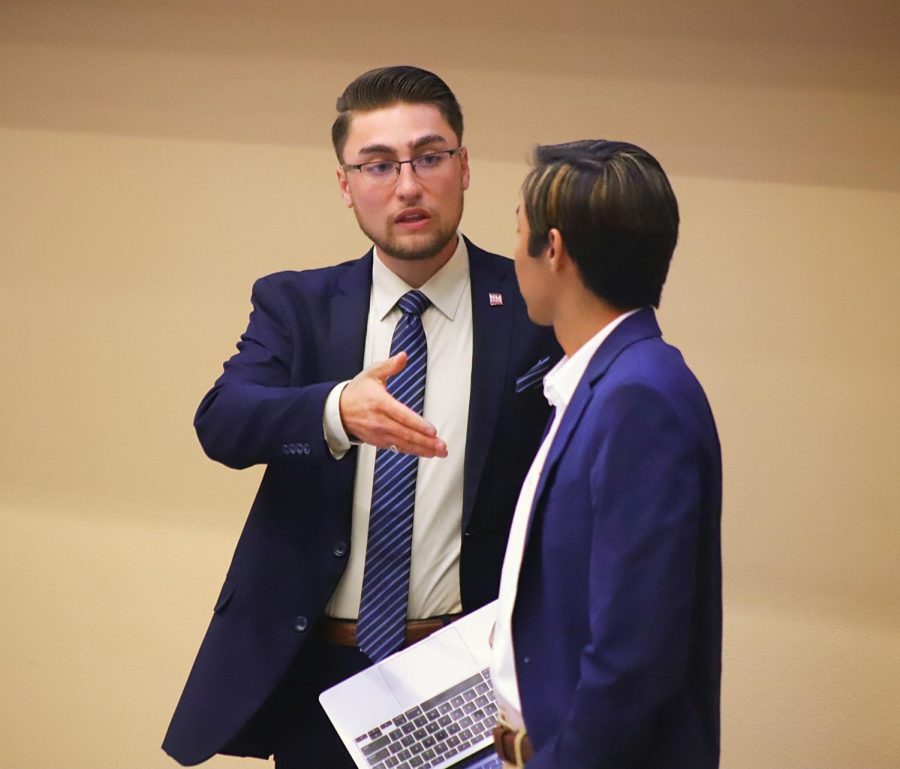By Billy Huntsman
Managing Editor
This is the fourth installment in The Round Up/Oncore Magazine‘s 14-part series investigating professor turnover at NMSU.
Reasons for leaving
“I think in general you’ll find that faculty members are not treated as learning professionals,” says Leslie Gonzales, Ed.D, a higher education researcher at Michigan State University. “It’s sort of like, once they get out of grad school, it’s just assumed that you know how to teach, you know your content area, OK, you know how to research, ‘Go!’ But I think it’s really helpful when chairs and deans look at their faculty and see them as investments and as resources that need to be continually revitalized and invested in.”
Gonzales recently left Clemson University in South Carolina to take her current post at MSU. She says there were three primary reasons for her leaving.
The first, she says, was her inability to “grow” within the confines of her department at Clemson. This was because her colleagues were not “excited” about her work.
“The second reason was, I was the only woman of color in my department for a good period of time,” she says. “I believe I was the first Latina hired (to my department). So that can be pretty isolating.”
Even more isolating as the five or six professors left during her five years at Clemson, all but one of whom were faculty of color.
Further, she says, Gonzales constantly felt the need to share Latina perspectives on higher education with her students, which she says was “exhausting.” This is called “cultural taxation,” she says.
The third reason, she says, was that Clemson is located in South Carolina, the South.
“The conversation about diversity, and rightly so, it was usually a Black-and-White conversation,” she says.
She says there was “just so much work” in bringing up “issues (that are) more central maybe to a Latino population” in such an environment as Clemson.
“I wanted to be in an environment where I could do that work with maybe a bit more support and where there’s maybe more of an established history talking diversity and equity,” Gonzales says.
Why do other professors leave universities?
Gonzales’ research focuses on how professors “create a space for themselves,” particularly in institutions that are “understudied” in higher education, such as Hispanic-serving institutions, such as UTEP, from which Gonzales graduated with her doctorate. NMSU is also an HSI.
“For a faculty member, it’s really important for them to think about how they create a space and a narrative that they belong,” she says. “That they belong in academia, valid intellectuals, solid teachers, that they have something to contribute, in other words.”
Gonzales says reasons for professors leaving a university typically arise from “departmental politics, a lack of a sense of fit, a sense of marginalization.”
Gonzales says a particular source of dismay for professors can come from a sense that their work does not “fit.”
“People who get Ph.D.s, doctorates, that becomes a huge part of your identity,” she says. “And to be in this space where you feel like your work or your contributions might not be valued or fit or be viewed as legitimate, that’s really serious, that can be very damaging.”
Gonzales says underrepresentation, particularly at the departmental level, could be a reason for professors leaving NMSU.
“Oftentimes you’ll see that turnover might be more common among your underrepresented racial/ethnic minority faculty,” Gonzales says. “It might become even more acute under women from those particular racial/ethnic groups.”
Of the 10 identifiable professors who have left since 2011: seven are women, five of whom are Hispanic/Latino/Chicano, two Black.
Further, Gonzales says, her research has found it is not uncommon for “faculty that are situated in the social sciences, liberal arts, humanities, or even in the fields of social work, education, they may have an approach to their research that is different, that might challenge some of the norms of the curriculum or even the knowledge base of the discipline, and if you’re dealing in a department where you only have older White colleagues who have not been exposed to these different theories or ideas or who have been trained in a very conventional way, that might present a very uncomfortable and, indeed, what is perceived as a racist environment for faculty members of color.”
All of the 10 professors worked in either the colleges or departments Gonzales mentioned.
Reasons NMSU Provost Dan Howard has encountered include professors leaving NMSU in order to be closer to family, because they want to be at larger research institutions, and because they received offers from other universities.
“If someone does get an offer from another institution, we’ll often work very hard to match that offer,” Howard says. “In some cases, we can’t. In some cases, we have faculty who don’t even try. In other words, they’ve got a wonderful offer from a major university and their feeling is New Mexico State can’t possibly match the offer, and so they don’t even ask us.”
Howard says he is disappointed when this happens, but he understands when it happens.
Related to this also, Howard has also seen professors leave because of salary dissatisfaction. To remedy this, Howard says, millions of dollars have been invested in faculty pay over the last four years.
The majority of NMSU Department of Anthropology Professor Emerita Christine Eber’s respondents in her 2008 study as to why professor leave NMSU, as well as TRU/OM’s interviews, did not cite salary as a reason for their leaving.







